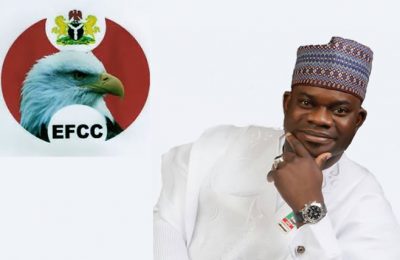Extremism is not terrorism, but terrorism is the result of taking an uncompromising stance on personal ideologies. It is enough that we take our decisions, but we live not for ourselves but for others, buttressing the African communitarian idea of personhood expressed in the Ujamaa philosophy of Julius Nyerere and the Ubuntu philosophy viz; “I am because you are”. What this means in my view is that we do not rejoice or suffer pain alone and also we regard other’s joys or misery as ours irrespective of whatever perspective or ideology we develop or become eventually inclined to. This for me is humanity and it does not support swipe at people or their heroes.
Religion according to Karl Marx is “the sigh of the oppressed creature, the heart of a heartless world, and the soul of soulless conditions. The opium of the masses”. By this, he reminds us of the strong feeling of attachment that humans have for the Supreme Deity including the prophets. If we dare to take a cursory glance at what religion is, an eagle eyed approach will reveal that we are all subscribers of one religion or the other in terms of our beliefs and idiosyncrasies. For a typical African, religion defines the person and our religion as held by the renowned African philosopher John Mbiti is pervasive and we are immerse in it. Our life from cradle to the grave is clouded with belief systems that unite us with the Divine and it subtly aligns with the African culture. But I do not intend to bore you with religion and humanity from the abstract but pragmatic view, leveraging on a twofold analysis of the trending story of Mubarak Bala.
It is no news that the social media is agog with debate on this young mind and President of Humanist Association of Nigeria. The arguments span from legal to non-legal perspectives, and this is an attempt to balance the contrasting opinions. If you have not bordered to follow it up, I will present a summary of the issue at hand. Mubarak was a born Muslim who renounced Islam for Atheism in 2014; an act his family likened to psychic disorder and committed him for psychiatric rehabilitation but he was found normal and discharged.
Recently he is alleged to have taking a swipe on the Prophet Mohammed (PBUH), calling him a terrorist and comparing him to Prophet TB Joshua whom he had also thrown jibes at for going to pray on the mountain just before this trending tantrum.
In view of this, he has been “charged” and “tried” in the courts of consciences and even “convicted” or “acquitted”as the case may be, but not before any civil or regular court as of the time of writing this piece even though same is a crime of blasphemy under the Penal laws of Nigeria domesticated in various States and the Shariah Penal Code. He has since been arrested in Kaduna for act capable of inciting public disturbance and cybercrime.
Foundational Legal Tessitura of the Discourse
The Supreme Law of the Federal Republic of Nigeria is the Constitution of the Federal Republic of Nigeria, (CFRN) 1999 (as amended), and this is an undisputed fact. It is the grundnorm and fons et origo, in other words, the livingspring that breathes life to all other laws and on which their validity is determined. Thus, any other law that is inconsistent with the Constitution is to the extent of its inconsistency null and void. See Section 1(4) of the Constitution. The Constitution also guarantees further the freedom of thoughts and expression pursuant to sections 38 and 39 which relevant provisions are laid bare below;
Section 38 (1): “Every person shall be entitled to freedom of thought, conscience and religion, including freedom to change his religion or belief, and freedom (either alone or in community with others, and in public or in private) to manifest and propagate his religion or belief in worship, teaching, practice and observance.”
Section 39 (1): “Every person shall be entitled to freedom of expression, including freedom to hold opinions and to receive and impart ideas and information without interference.”
Section 39 (2): “Without prejudice to the generality of subsection (1) of this section, every person shall be entitled to own, establish and operate any medium for the dissemination of information, ideas and opinions:
Provided that no person, other than the Government of the Federation or of a State or any other person or body authorised by the President on the fulfilment of conditions laid down by an Act of the National Assembly, shall own, establish or operate a television or wireless broadcasting station for, any purpose whatsoever.”
Section 210of the Penal Code Act with similar provisions in the criminal laws of various states in Nigeria provides as follows:
“Whoever by any means publicly insults or seek to incite contempt of any religion in such a manner as to be likely to lead to a breach of the peace, shall be punished with imprisonment for a term which may extend to two years or with fine or with both.”
An Appraisal of the Matter
Nigeria is one Country where dead letter laws exist until someone feels the need to push a course for good, bad or no reason. Recently, I made an observation about the President’s recent national broadcasts and the deliberate exclusion of persons living with impairment by not employing any sign interpreter and a friend drew my attention to the fact that in Nigeria Bills are signed into laws with no intention to obey or keep them! This quite frankly is the true position of our country.
Suddenly, we feel the need to enforce the law on blasphemy which virtually everyone including those pointing accusing fingers have misused and abused at one point or another in our overzealous religiosity. In this same Country people have been maimed by their fellow humans for their divided religious positions; if our encrypted messages and chats on various platforms are divulged, we will get to see and know how gullible Nigerians calling for the head of Mubarak had insulted the idols of one religion or another or obstructed religious practices. But how come the attitude is different when ours is affected?
The reality of the human person especially Africans is that our religious sides reflect in all we do and the makers of the Penal laws were not in any way exempted from this reality. They were strongly influenced by their religious positions to tie an extreme religious consequence to a non-religious positions. The essence of the law on blasphemy should be based on respect for others’ views and religious decisions, and not to marshal out man-made punishment(s) on behalf of God. I am focusing on the Penal Code provision because despite being a recognized law, it is common knowledge that being an Islamic constitution, the Sharia law binds only adherents of the Islamic religion and not all persons.
Mubarak in the instant action is not a muslim; he converted and all psychiatric and psychological findings showed he was compos mentis at the time he chose to renounce Islam and his choice is one recognized under the supreme law of our land. (See Section 38 of the Nigerian Constitution). All intentions to bring him under the weight of Islamic law must be jettisoned, because it will amount to a ploy to bring him under stricter consequences of death penalty.
While his actions fall short of the criminal legislations and punishable on the face value, it is trite law that he has his freedom of expression, though this freedom is qualified to the extent that it does not infringe on others’ freedom as provided in section 45 of the Constitution.
In the case of Schenck v. United States, 249 U.S. 47 (1919), Justice Oliver Wendell Holmes Jr. thought in same line when he opined that the most stringent interpretations of the First Amendment would not protect a person who causes public panic by shouting “Fire!” in a theater when no fire exists. The “petitioners” in the instant case acted out of “concern” for maintenance of the rule of law and to avoid the usual mob attacks in Nigeria, but it leaves a big question of whether those crying foul are not crying more than the bereaved, because as it is in this case, only the Prophet Mohammed (PBUH)can sue for enforcement of this breach, maybe on the ground of libel if he was a Nigerian, but all other aggressions we have fall under our subjective ideological reservations as we are not directly affected by his (Mubarak’s) actions, but our own over-religious sentiments, thus removing the locus of prosecuting this action from us, except if crimes should now be judged based on relative affection.
It is clear that the drafters of the extant legislations did not envisage a society where freedom of expression will be a priced commodity, and that again, is the problem with having laws that are not dynamic or not checked from time to time. For a law to pass for it, it must possess the feature of being dynamic and evolving with a non-static human society. The Penal laws relied on in this instance in my view have failed to meet this basic requirement. They are laden with provisions that do not conform with modern societal thoughts. Thus, it becomes a call for concern that strict action be taken on the bases of such laws even though they are yet to be altered, they must be subjected to the judges ingenuity guided by an objective moral compass where the Constitution is silent, but in the instant case, the Constitution is loud enough. The law on blasphemy is a derogation of the qualified right to expression in the Constitution and modern society especially when viewed in relation to diverse religious sentiments thus should not be a good travel route in the instant matter.
The said provision is to deter people from acts injurious to the public in general not the passion of fewwho choose to be overly sensitive or reactive. Hence, it should be a question of objectivity; that is, how an objective mind will naturally react in such situation, not the subjective view taken over the “court” of social media! But as we know, an average African will not welcome denigration of religious heroes due to sentiments. Why call for the head of a person because you perceive an outcry that has previously led to illegal mob actions you once overlooked, instead of also teaching this supposed victims the civil route to such situations?
On the flipside, we cannot spare the rod if we want posterity to be kind on us. It has often been said that he who lives in a glass house should not throw stones. The painful truth is that as humans, we need to develop thick skin to things we cannot change and respect people’s choices and actions by never taking actions to denigrate their values and rich cultural or religious ideals.
Man is a social being as Aristotle opined and he lives in a society with others because his nature requires that he cannot meet all his needs and Adam Smith stated that these needs are insatiable. Not being an island, man must be able to coexist with others, accept their ideological differences and be able to live in harmony. This only happens by respecting how others feel about the opinions we share publicly especially when it has to do with their strong attachments. If we must dissent, it should be in good faith and objectively too. In that way, they respect your own decisions too and this sums up the Ubuntu philosophy of humanity towards others, and Mubarak Bala of all persons should have known better. As a leading figure of the humanist movement he should have ordinarily known that humanity prides the happiness of all as a utilitarian approach.
Every religion holds a very good support for humanity and in fact, it is religion that has championed the cause of humanity the most when compared with other institutions, not undermining the fact that there are extreme practices by many in the guise of religion, but this pass more as unbalanced spirituality or puerile emotional display and the humanist should ordinarily help man to “shatter the fetters of religion” only to the extent of its extremism. The currents of thoughts about humanists coming against religious institutions are worrisome and show apparent limited understanding of the real ideals of humanity. Being humanist puts you in a better position to balance religion and love for nature, not to take extreme humanistic positions as well, because it is same problem religion is battling with.
In my view, Mubarak’s case is one of the many fights staged against religion and it is good we learn to align our thoughts properly and not get deluded by ideologies as to keep shifting the goalposts to suit our new inclinations. Taking a swipe on people or their idols can pass for cyberbullying and can cause undue agitations, which a genuine humanist should never fall foul of, even though it is a fate all religion suffer but with different reactions.
It is true that Africans are very religious and sentimental on issues of faith, but it is also a virtue in religion to be moderate. We must choose our fights rightly; that is what makes us homo sapiens -beings with intellect as against other beings. We must develop a degree of understanding and objectivity when we dissect views; it helps to cement our relationship with God and neighbour. Never sit on the fence until you are directly affected. The venom poured and actions taking would have been different if our ego has not been punctured. Will the situation be the same if the condemnation was against Jesus Christ or other revered prophets in other religion? We have tolerated so much of “blasphemy” against other religions, but become hypersensitive when it affects ours. We need a switch in thought and the grace to leave the fight of God to God. He is big enough to fight his battles and defend His name, he does not need mere mortals to fight his cause.
Religion itself is evolving because it is made for man and not man for it. All religions developed in stages, and if this can be swallowed without bias, every religion will accept their past flaws. The transformative phases are tests of its maturity. The crusades of the past existed, but better understanding has taught us the need to allow individuals take their religious stands and not foist any religion on them. I think all religions especially the Abrahamic religions must wake up to this reality. We cannot apply the law as given to Moses word for word in view of current realities. Religion must thus hold its substance but shed its weight from other complimentary or society-based practices of the past.
As Nigerians, the advent of technology and verifying information has made us dare to avoid mob attacks on matters like this and it shows we are moving with the tide and responding positively to societal change, but we must dare to do more and clear our minds of subjective standards in religious discourses. We must grow together and understand that what God expects from us is Love for him and our neighbour. This is the greatest commandment for all men. I therefore, call on the Nigerian Police Force to be circumspect in handling this situation under discourse.
– Francis Ojima Akoji Esq.
akojif@yahoo.com, 09057287327
Social Media Handles:
Twitter: https://twitter.com/ojimson?s=08
Facebook: https://www.facebook.com/akojif




